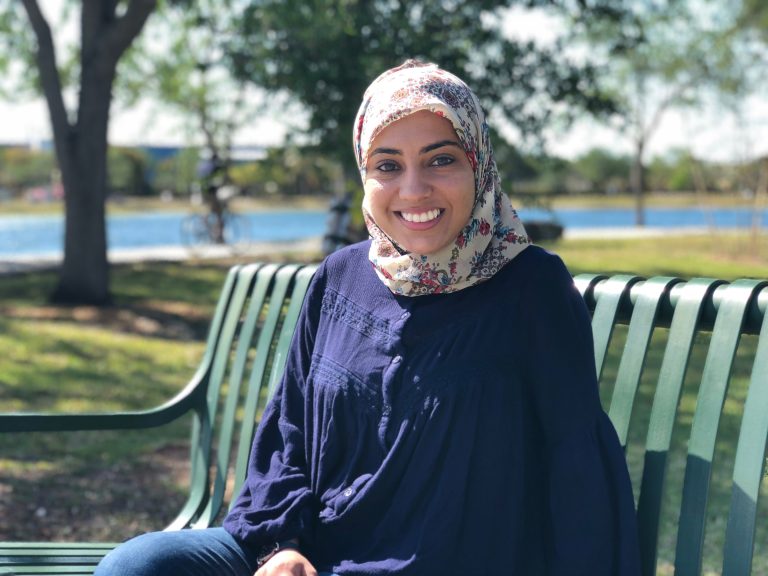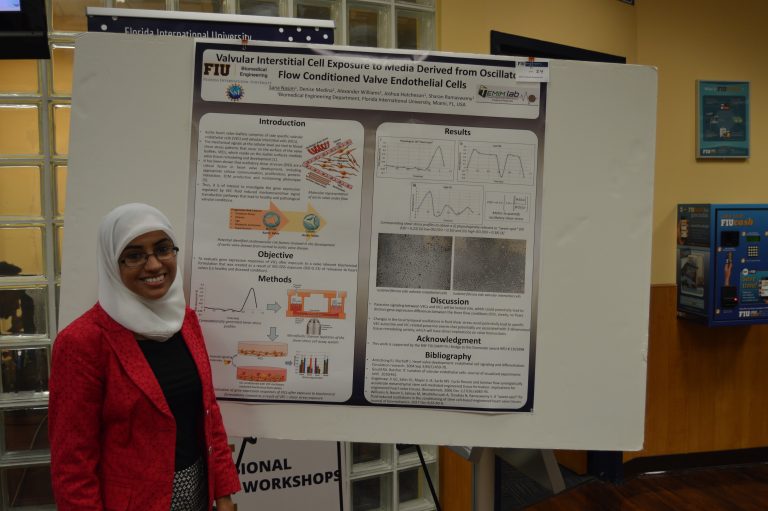 Throughout the month of March, we celebrate women from around the world who are empowering and inspiring. We had the opportunity to interview graduate student, Sana Nasim, to hear about her background, and what it’s like to be a successful woman in a male dominated field.
Throughout the month of March, we celebrate women from around the world who are empowering and inspiring. We had the opportunity to interview graduate student, Sana Nasim, to hear about her background, and what it’s like to be a successful woman in a male dominated field.
Where are you from?
I was born and raised in Pakistan. My family moved to the United States for better educational opportunities, when I was 17. Right after finishing up high school, I decided to pursue biomedical engineering with applied mathematics minor at New Jersey Institute of Technology. My family’s transition to the United States and our struggles and hardships have constantly motivated me to do my best in school and pursue the passion I hold for the STEM field.
Why did you decide to pursue a Ph.D.?
I was very intrigued by the research I was doing in undergrad, which made me realize that this is something I would do even if I won’t get paid for. Throughout my undergrad career, I had great mentors who helped me envision my passion for research and mentoring. Mentoring others has helped me to gain a sense of satisfaction by making a difference in another person’s life. I learned from these experiences the significance of education and its lasting effect on a person’s life, which led me to pursue a Ph.D.
Why did you choose FIU?
FIU offered me a NSF Bridge to the Doctorate Fellowship which covered my first two years of graduate school. This specific fellowship came with an outstanding support group, which was very important for me. I chose Dr. Sharan Ramaswamy as my mentor, who is an expert in the field of cell and engineered tissue mechanics with application in cardiovascular regenerative medicine.
Are you the first in the family to purse a doctorate degree?
I am actually the first generation to go to college so pursuing a Ph.D. is far beyond my parent’s vision.
Are you part of any clubs or organizations at FIU?
At FIU, I’m part of the Graduate Student Advisory Board, which gives me freedom to sit on a board to bring the graduate student body’s concerns and plan activities, especially for the graduate student appreciation week. I am also a University Graduate School’s student representative where I represent the FIU graduate student body in front of incoming masters and Ph.D. students. Besides organization, FIU has given me opportunities to mentor high school seniors and high school teachers for the past two summers that I have been here. It has been a rewarding experience for me to see them present their work at the end of the summer and embark their college careers at Ivy league schools.
 Please explain your research.
Please explain your research.
My research is towards the understanding of valve endothelial cells mechanobiology for diseases such as aortic heart valve calcification. Specifically, I focus on understanding VEC signaling events based on a fluid – induced external mechanical stimulus. By understanding the ways cells sense and respond to mechanical forces leading to changes in the gene expression, new detect initiators of disease to restore tissue to normal condition can be developed.
What are your post-graduation plans?
My life has been driven by two passions: research and women’s empowerment. My prime motivation to continue research is to make a significant difference within the field and find a better cure to cardiovascular diseases that affect billions of people around the globe. I want to be part of the solution, both as a scientist and as a woman leader who can help empower women to pursue higher education. After my Ph.D., I plan to pursue a post-doc position driven more toward genetic engineering with the cardiovascular interest and potentially have my own independent lab one day.
What is it like being a female in BME? Do you have any female mentors or role models that you look up to?
Being a female in engineering is quite intimidating. I am well aware of the painful lack of women in STEM fields, but it has not discouraged me because I also see first-hand evidence every day that being a woman has nothing to do with success. I know that while the road so far has been difficult, and I’ve worked harder than I ever have before, so does every other male engineering student. The world today is progressing towards breaking the stereotypes – be it men in nursing or women in engineering. I am absolutely blessed to have an incredible support group of male and female mentors, who have constantly pushed me to be the best version of myself. If it wasn’t for them, I wouldn’t be where I am today. Most importantly, my mother has been a phenomenal role model who always made sure that I had every opportunity in life to succeed not materially but spiritually. I’m forever grateful for her and everything she taught me and continues to teach me.
Do you have any advice for young women in BME?
Be persistent and consistent with your goals. Always ask yourself, what am I doing for others? It’s important to be there for one another and push each other. It took me quite a long time and many people to help me develop a voice. Now that I have it, I am not silent. Never doubt yourself. You are powerful and deserve every chance and opportunity in the world to pursue and achieve your very own dreams.
